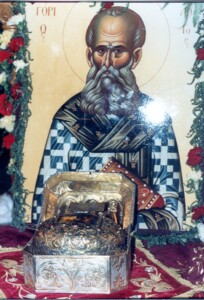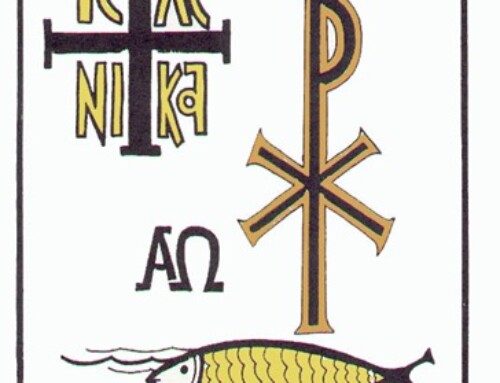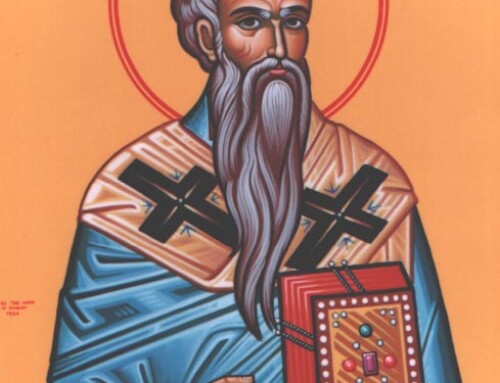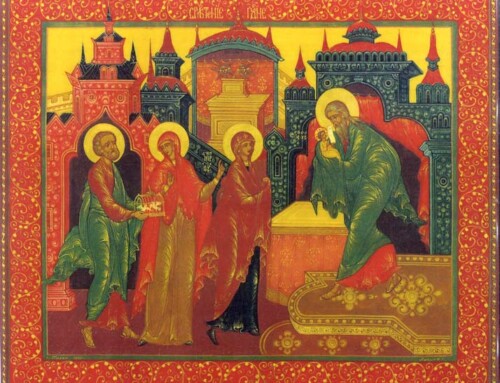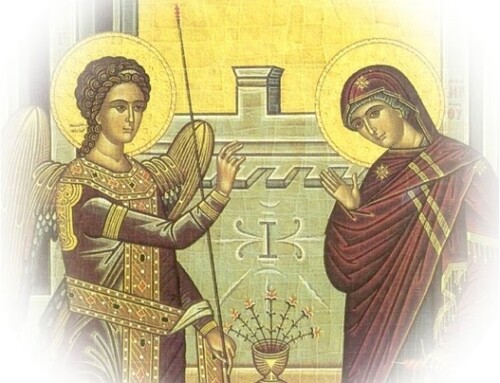Word Magazine January 1989 Page 9-10
PERSONAL TESTIMONY
by Esta Lee Belisle
Like most people in North America, I became a Christian as a child. Each Sunday morning my mother scrubbed me clean, dressed me in my prettiest dress, and gently deposited me at the Sunday School door. As a class we sang “Jesus loves Me” and “What a Friend We Have in Jesus.” We memorized Bible verses. We listened to the exciting Bible stories. We lifted our slingshots and helped David slay Goliath. We imagined Daniel playing with the lions, much as we would play with our kittens.
It was the Jesus stories I liked the best. The story of Jesus as the Good Shepherd was one of my favorites. I would look at the picture on the wall of Jesus and the children and pretend that I was sitting on his lap. Even at such an early age I was touched by God’s love.
As a teenager my activities centered around those of First Baptist Church, Wichita, Kansas. We had parties of all sorts — skating parties, sing-a-longs, campouts, and dinners. We were constantly busy.
In my early twenties I married and began to have a family. My church attendance began to fall. As the mother of five children, I felt overwhelmed by the effort it took to clean and dress them and get them to the church on time, to say nothing of trying to keep five squirming children quiet during the service. It was during this time I began to feel an incompleteness within my spiritual life.
By age thirty my church attendance was shameful, yet when I did attend I felt as if I had not truly worshipped. The church of my childhood, so dearly loved, was not, as the church of an adult, bringing me closer to God. It was as if I had opened a book, read chapter one, then discovered the rest of the book was missing.
I had heard the salvation message, “Repent and be baptized,” preached from the pulpit thousands of times. “Accept Jesus Christ as your personal Savior,” I had been told. I had done this as a child. I had made my commitment and been baptized in the name of the Father, Son, and Holy Spirit. Now in my thirties I felt I was not growing in the Christian faith. Not only did I feel a deep spiritual need, I felt I lacked the tools necessary to fill that need.
I prayed, but my prayers were dry. I studied my Bible frequently, but I failed to gain new insights. I tried to increase my faith, but I sometimes slipped backwards.
As my children grew, my search grew. I knew that somewhere there was a place I could feel close to God. I knew that somewhere there was a place I could feel as if I were worshipping God. I knew that somewhere there was a teacher or teachers who would help me in my spiritual search. Somewhere there was the rest of the book and I was determined to find it. It was many years later that I found it within the Orthodox Faith.
It was in my early thirties that I decided to continue my education. My parents were simple people. My father was a railroad engineer, my mother a Christian homemaker. They did not have the money to send me to college. I had an intense desire to lift my educational level, so I decided to begin taking classes at Wichita State University. This was to continue on and off for the next 17 years. I believe that this return to school was a part of my spiritual search.
It was also during this period in my life that I began to investigate other faiths. I first studied other Protestant churches. I was basically a Baptist, although I had attended a Christian Church for about three years.
The Baptist Church places the most emphasis on repentance and baptism. The Bible is considered the Word of God. They baptize in the name of the Father, Son, and Holy Spirit, by immersion. Infants are not baptized. One must wait until the age of reason, and this differs from child to child. Each Baptist church is autonomous, that is, there is no central authority. Each Baptist congregation is its own authority. Each Baptist is free to interpret the Bible for himself. While there is no statement of faith, it might be of interest to know that we sometimes read the Nicene Creed from the back of our hymnals. When I asked our pastor where this Creed came from, he said it was very old and had been used by the Christians a very long time ago.
I found some of the other Protestant churches to be very similar, some very different. Some considered themselves to be charismatic, and spoke in tongues, or glossolia. I do not pretend to understand this phenomenon. I feel that God understands me whether I speak English, Arabic, Spanish or Chinese. There seemed to be something missing in all the Protestant churches. I couldn’t quite define it, but I knew there had to be more.
I read much about Roman Catholicism. I attended Mass several times. The worship itself attracted me. There seemed to be much reverence attached to it. There seemed to be more outward symbols of faith. There were, however, teachings within the Roman Catholic faith that I could not reconcile with my own studies of the Bible. The infallibility of the Pope was the primary difference. Purgatory was another.
I looked into other world religions. I found good and moral teachings in some of these religions, but they were not Christian. The mysticism of the East was attractive, but it was not Christian. Whatever I was, I was a Christian.
These three, the Protestant faith, the Roman Catholic faith, and other world religions, seemed to be the only available choices. I simply did not know the Orthodox Faith existed. Most westerners don’t know about the Orthodox Faith. They often confuse it with Orthodox Judaism. When you say “Catholic” to most westerners, they think you mean Roman Catholicism.
It was in the classroom that I discovered the Orthodox Faith. I took a class entitled “The Long Search.” This class was similar to a class in Comparative Religion; however, it varied in that it dealt with the individual’s search for God. One of the films in this class was “The Rumanian Solution.” The film dealt with the Orthodox Church in Rumania. Perhaps some of you have seen this film.
It had portions of the liturgy. I had never seen a service so full of grandeur, or so spiritual. The liturgy seemed to be true worship. The narrator explained how the liturgy unfolded the life of Jesus. I was deeply moved. When I heard the Bishop speak, I was intrigued. He told the narrator that he did not really know Christianity until he knew Orthodox Christianity.
At that time I was taking twelve hours of classroom work. I was close to graduation. I still had three children at home, and I worked part time. I simply did not have the time to investigate this Orthodox Faith as I wanted to.
When I completed my degree I began to read everything I could find about the Orthodox Faith. I first read the history of the Church. It became clear, from all the sources I read, that the Orthodox Faith was the true preserver of the Church that Jesus Christ had instituted. There is no doubt in my mind, the Orthodox Church is historically the true Church. The Roman Catholic Church had split from the Orthodox Church. The Protestant Church had split from the Roman Catholic Church.
It was no wonder the other churches seemed to be missing something. They were missing something.
They were missing Biblically-based traditions. They were missing the Sacraments, the Mysteries.
Ordination was one Sacrament dramatically missing from the Baptist Church. The Orthodox Faith can trace its authority from Jesus Christ, through the laying on of hands and the descent of the Holy Spirit. This is a very important point to me personally as I am willing to submit to authority only as long as I know it the true authority. There are too many false prophets running around North America to give authority lightly.
The Sacrament of Confession is missing entirely from the Baptist Church.
The Sacrament of Chrismation is missing entirely.
The Sacrament of Holy Unction is missing entirely.
The Sacrament of Baptism is similar; however, Baptism is denied to infants.
The Sacrament of the Holy Eucharist, while practiced in the Baptist Church, lacks the mystery that it has within the Orthodox Faith. The Baptist Church does not believe in Transubstantiation. Infants cannot take communion.
The Sacrament of Marriage is very much the same. It is considered to be holy and instituted by God.
I contacted St. George in Wichita and planned to attend my first liturgy. That same week I discovered I had cancer, a very serious cancer, but one that was curable. The next year and a half was spent with radiation treatments and radical surgery. Father Anthony Scott in Wichita at that time, who also used to be a Baptist, sent me bulletins and several books. I had nothing to do but lay around the house, recover and read. I studied those bulletins and books. I discovered the wealth of spirituality present in the Orthodox Church.
In May of 1986 I moved to Oklahoma City and began to attend St. Elijah. It was like spring after a harsh winter. My spiritual life began to bud.
The Orthodox Faith seems to address itself to the spiritual growth of an individual. Most of the popular Protestant churches today seem to dwell on being born again. I believe it is important that one make a commitment sometime during one’s lifetime, to give that life to God, and live the life Jesus Christ taught us to live. But Christianity is more than one experience. To be a Christian one must grow in the faith.
I have found the Orthodox Faith to address itself to this growth. I have found much within the Church to help me in this growth.
There are nearly two thousand years of wisdom waiting for those who wish to avail themselves of it. There are a myriad of saints whose lives one may aspire to. There are the traditions, which are Biblically-based. Father Constantine Nasr, our pastor, in our lessons, gave us those references so that we might read them for ourselves.
There is the art of the Church. These Icons are not only very beautiful, they are very holy. There are the outward symbols of faith that one may perform to help himself become closer to God, such as crossing one’s self, kissing the Icon, or lighting a candle.
There is the liturgy. When I participate in a liturgy, it is as if I am experiencing a part of the kingdom of God. I feel lifted above the cares of this world. When I am in this church I feel as if I am in God’s presence. After the liturgy I feel as if I have truly worshipped God, in a manner that is pleasing to God. This is indeed a blessing after so long a search.
I wish to thank the good Christian people of the Church who have welcomed me with smiles and handshakes. The newcomer, especially a newcomer from a Protestant background, is rather shy and a little fearful. There is nothing that matches a liturgy in a Protestant Church. The newcomer wants to behave in a proper manner and doesn’t always know how. They must learn. It is my sincere desire that whatever talents I have may serve God, through the intercession of St. Elijah.
I wish to thank Father Constantine Nasr. From my first phone call to him he has kept his office doors open to answer my many questions. He has kept me supplied with reading materials. I have enjoyed our catechism lessons. We learned much. Father Constantine was always patient and thorough. I met some fine people.
There is no animosity between myself and the Baptist Church I left. I owe them my gratitude. They introduced me to Jesus Christ, and taught me to study the Bible. I must love them for that. The Baptist Church is just not enough. The Orthodox Faith is enough. It is the Church Jesus Christ instituted. The Orthodox Faith is where my heart is.
I do not consider my conversion to the Orthodox Faith to be the end of a search. Whereas my Protestant faith opened the book for me, the Orthodox Faith has the ongoing chapters. God in his infinite wisdom will write the ending.
I thank you for your graciousness. I thank you for your Christian love. I thank you for sharing your Orthodox Faith with me. There is one more thank you. When I had radical surgery on my neck and throat for cancer, they removed among other things a half inch of my tongue. No one knew if I would be able to speak or not. I would like to take this opportunity to thank God for having saved my speech and for bringing me here today.
Esta Lee Belisle is a member of St. Elijah Church in Oklahoma City, OK. We thank her for sharing her “personal testimony” with the readers of THE WORD.

